China is not only the birthplace of tea but also the world’s leading producer of fine porcelain. For wholesalers and distributors, combining porcelain tea sets wholesale with authentic Chinese tea knowledge creates unique product value. By offering both tea and teaware, you can appeal to retailers, hospitality buyers, and cultural distributors who want more than just drinkware—they want a story.
Why Porcelain Tea Sets Matter in the Global Tea Market
Porcelain has been at the heart of Chinese tea culture for centuries. The texture, colour, and aroma of tea are best revealed in porcelain teacups, which highlight clarity and preserve flavour. For wholesale buyers, porcelain tea sets are:
-
High-value items that elevate brand image and margins.
-
Flexible for different markets, from luxury gift boxes to everyday dining.
-
Culturally authentic, making them attractive for international buyers seeking heritage and craftsmanship.
When paired with the right type of tea, porcelain tea sets become more than products—they transform into lifestyle experiences.
Types of Chinese Tea and Their Ideal Porcelain Pairings
1. Black Tea (Hong Cha)
-
Cultural Role: Popular in both domestic and export markets, valued for its robust taste.
-
Market Appeal: In Europe, black tea is often blended (e.g. English Breakfast, Earl Grey). In China, it is lighter and consumed pure.
-
Porcelain Match: Handled porcelain mugs—perfect for Western buyers who add milk or sugar.

2. Green Tea (Lu Cha)
-
Cultural Role: Associated with health and wellness, a fast-growing category in the global tea market.
-
Market Appeal: Fitness and wellness-focused buyers in Europe and North America.
-
Porcelain Match: Delicate porcelain tea bowls or lidded gaiwan—highlighting the vibrant green colour and light flavour.

3. White Tea (Bai Cha)
-
Cultural Role: Elegant, subtle, and highly valued as a premium gift.
-
Market Appeal: Luxury gift sets and high-end distributors.
-
Porcelain Match: Bone China porcelain cups, with thin rims that enhance the delicate flavour and aroma.

4. Oolong Tea (Wu Long Cha)
-
Cultural Role: Known as the “connoisseur’s tea,” complex and aromatic.
-
Market Appeal: Popular in Taiwan, Hong Kong, and premium tea shops worldwide.
-
Porcelain Match: Small porcelain tasting cups, which allow multiple infusions and gradual flavour release.

5. Pu-erh Tea (Pu’er Cha)
-
Cultural Role: Aged and fermented, often compared to fine wine in terms of value.
-
Market Appeal: Collectors, tea connoisseurs, and Asian markets.
-
Porcelain Match: Rustic yet elegant porcelain cups, often darker-toned to complement the earthy character of pu-erh.
Chinese vs. Western Tea Culture: Adapting Tea Sets for Export
-
China: Teas are served without milk or sugar, with porcelain teaware emphasising purity, colour, and aroma.
-
West: Black tea is often consumed with milk, requiring larger porcelain cups with handles.
???? For wholesalers, this means product lines should adapt designs by market: refined, minimalist porcelain tea sets for Asian buyers and more robust, handled cups for Western markets.
Global Market Trends for Porcelain Tea Sets Wholesale
-
Rising Tea Consumption: The global tea market is expected to surpass USD 100 billion by 2030, creating demand for premium teaware.
-
Gift Market Growth: Porcelain tea sets are increasingly sold as luxury gift sets for corporate, festive, and hospitality clients.
-
Eco-Friendly Demand: Porcelain is sustainable and reusable, aligning with global eco-conscious trends.
-
Wholesale Opportunities: Bundled “porcelain tea sets + tea” packages offer high-value upselling opportunities.
How to Choose Porcelain Tea Sets for Export
Selecting the right porcelain tea sets wholesale is not only about aesthetics but also about meeting the expectations of different global markets, ensuring product durability, and aligning with long-term business strategies. For B2B buyers, the following factors are crucial:
1. Market Preferences & Cultural Fit
-
Asian Markets: Customers often prefer delicate, smaller cups without handles, which highlight tea colour and aroma in line with traditional Chinese tea culture.
-
Western Markets: Retailers and hospitality clients usually require larger porcelain mugs with handles, especially for black tea with milk.
-
Middle East & Russia: Buyers favour ornamented sets with gold trims or decorative motifs, often used for gifting and special occasions.
???? Tip for Wholesalers: Offer market-segmented product lines, so distributors can easily choose designs that resonate with local consumer habits.
2. Material Choice & Positioning
-
Bone China: Ultra-thin, translucent, premium quality—ideal for luxury gift sets or high-end retailers.
-
Classic Porcelain: Durable, versatile, cost-effective—perfect for supermarkets, e-commerce platforms, and mass retail chains.
-
Stoneware or Strengthened Porcelain: More robust and heat-retentive—suitable for cafes, restaurants, and hotel chains.
???? By defining the right material, wholesalers can align price positioning with target market tiers (luxury, mid-range, or mass consumption).
3. Customisation & Branding Opportunities
In the B2B wholesale market, customisation is a deal-breaker:
-
Corporate Branding: Adding client logos for corporate gifts or hospitality groups.
-
Cultural Design: Integrating traditional Chinese patterns (e.g., dragon, peony, blue-and-white motifs) to highlight authenticity.
-
Seasonal Collections: Christmas gift sets, Lunar New Year editions, or regional designs tailored for cultural festivals.
???? Tip: Wholesalers who can provide flexible OEM/ODM services gain strong repeat business, as resellers love exclusive product lines.
4. Compliance & Export Readiness
Global buyers, especially in the EU and US, require strict adherence to safety and trade standards:
-
Food Contact Safety: Lead- and cadmium-free certification is essential.
-
Sustainability: Increasing demand for eco-friendly packaging and reusable, durable porcelain products.
-
Logistics & Packaging: Ensure porcelain tea sets are packaged securely for international shipping—foam inserts, double cartons, and drop-test certification are highly valued.
???? Meeting compliance not only avoids customs delays but also positions your business as a reliable long-term supplier.
Final Thoughts
For wholesalers and distributors, porcelain tea sets wholesale is more than just a product—it is a cultural gateway. By pairing authentic Chinese teas with porcelain teaware, you can offer your clients not only functional products but also meaningful experiences rooted in centuries of tradition.
This unique combination allows you to stand out in competitive markets, win long-term buyers, and capture the growing global demand for tea and teaware.

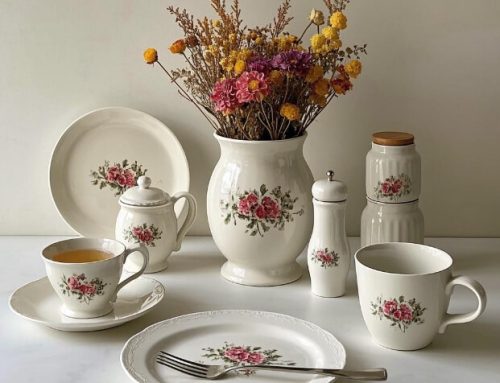
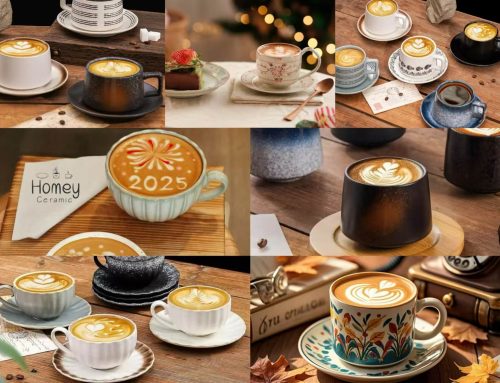
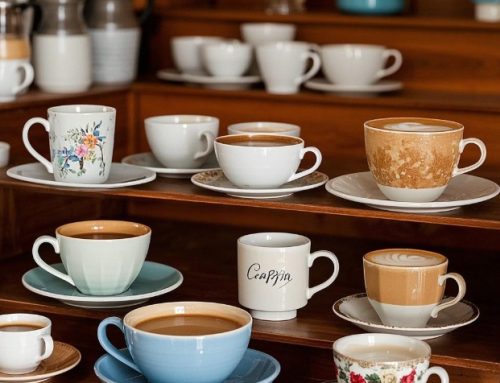
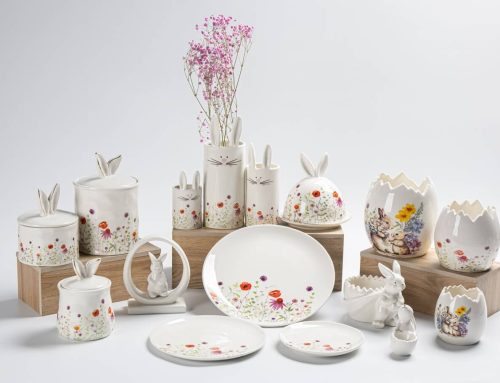
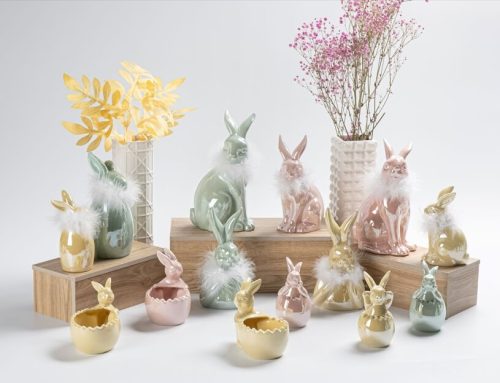
You ought to take part in a contest for one of the best websites on the net. I am going to recommend this website!
Thank you!I am glad to hear that.
The very next time I read a blog, Hopefully it wont disappoint me just as much as this particular one. I mean, I know it was my choice to read, however I really thought youd have something interesting to say. All I hear is a bunch of crying about something that you can fix if you werent too busy seeking attention.
Greetings! Very useful advice in this particular article! Its the little changes that will make the biggest changes. Thanks for sharing!
When you may need quick loans or fast loans, payday loans online
in Canada can provide emergency loans or small loans for all those
with bad credit or even no credit check. Qualified borrowers have
options for a bad credit score emergency loans guaranteed instant approval decisions from direct online Canadian lenders focused on urgent funding needs.
Whether for medical expenses, emergency travel, or auto
repairs, Canada’s reliable online lenders provide urgent cash when households encounter
unexpected costs.
Mortgages with over 80% loan-to-value require insurance from CMHC or perhaps a private company.
Mortgage loan insurance protects lenders by covering defaults
on high ratio mortgages. The payment insurance premium for high
ratio mortgages is determined by factors like property type and borrower’s equity.
My website; Check My Credit Score
Thanks for ones marvelous posting! I actually
enjoyed reading it, you will be a great author.I will always bookmark your blog
and may come back down the road. I want to encourage one to continue your great job,
have a nice holiday weekend!
Excellent blog! Do you have any helpful hints for aspiring writers?
I’m hoping to start my own blog soon but I’m a little lost on everything.
Would you recommend starting with a free platform like
Wordpress or go for a paid option? There are so many choices out there
that I’m completely overwhelmed .. Any tips? Many thanks!
Keep this going please, great job!
Hello there! This is kind of off topic but I need some advice
from an established blog. Is it very hard to set up your own blog?
I’m not very techincal but I can figure things out pretty fast.
I’m thinking about setting up my own but I’m not sure where to begin. Do you have any tips or suggestions?
Appreciate it
Have you ever considered about including a little bit more
than just your articles? I mean, what you say is
fundamental and all. But think of if you added some great
graphics or videos to give your posts more, “pop”!
Your content is excellent but with images and clips, this
website could certainly be one of the very best
in its field. Terrific blog!
Undeniably believe that which you stated. Your favorite reason seemed
to be on the internet the easiest thing to be aware of.
I say to you, I certainly get irked while people think about worries that they just don’t know
about. You managed to hit the nail upon the top and defined
out the whole thing without having side-effects , people can take a signal.
Will probably be back to get more. Thanks
Fascinating blog! Is your theme custom made or did you download it from somewhere?
A design like yours with a few simple adjustements would really make my
blog shine. Please let me know where you got your theme.
With thanks
bookmarked!!, I like your blog!
It is the best time to make some plans for the long run and it is
time to be happy. I have learn this put up and if
I could I desire to counsel you some interesting issues or
advice. Perhaps you could write subsequent articles regarding this article.
I wish to learn more things about it!
Greetings from Carolina! I’m bored to tears at work so I decided to browse
your website on my iphone during lunch break.
I really like the info you present here and can’t wait to take a look when I
get home. I’m surprised at how quick your blog loaded on my mobile
.. I’m not even using WIFI, just 3G .. Anyhow, very good site!
What’s up, just wanted to mention, I loved this
post. It was inspiring. Keep on posting!
Hey there! This post couldn’t be written any better! Reading this post reminds me
of my previous room mate! He always kept chatting about this.
I will forward this article to him. Fairly certain he will have a good read.
Many thanks for sharing!
Howdy! Someone in my Myspace group shared this website with us so I came to check it out.
I’m definitely enjoying the information. I’m book-marking and will be tweeting this
to my followers! Outstanding blog and terrific design.
Hey exceptional website! Does running a blog similar
to this take a great deal of work? I’ve no knowledge of computer programming
but I had been hoping to start my own blog in the near future.
Anyhow, if you have any suggestions or techniques for new blog owners
please share. I know this is off subject but I just needed to
ask. Thanks!
Thank you for sharing your thoughts. I truly appreciate your
efforts and I will be waiting for your next write
ups thanks once again.
Hello! Quick question that’s completely off topic. Do you know how to make your site mobile friendly?
My site looks weird when viewing from my iphone 4.
I’m trying to find a theme or plugin that might be able to
fix this problem. If you have any suggestions, please share.
Thank you!
Hello, I enjoy reading through your article post. I like to write a little comment to support
you.
Hello there! I know this is kinda off topic however , I’d figured I’d
ask. Would you be interested in exchanging links or maybe guest writing a
blog post or vice-versa? My website goes over a lot of the same subjects as yours and I believe we could greatly benefit from each other.
If you are interested feel free to shoot me an email.
I look forward to hearing from you! Superb
blog by the way!
Hello to every one, it’s really a good for me to pay
a quick visit this site, it contains helpful Information.
Thanks a lot for sharing this with all of us you really recognise
what you’re speaking about! Bookmarked. Please also consult with my website
=). We will have a hyperlink exchange agreement between us
Hello! Someone in my Facebook group shared this website
with us so I came to check it out. I’m definitely enjoying the information. I’m book-marking and will be
tweeting this to my followers! Great blog and excellent design and style.
Great post. I was checking constantly this blog and I’m impressed!
Extremely helpful info specially the last part
:) I care for such information much. I was looking for this particular information for a long time.
Thank you and good luck.
WOW just what I was looking for. Came here by searching for
link bokep
Excellent article. I will be experiencing many of these issues as well..
constantly i used to read smaller articles which as well clear
their motive, and that is also happening with this article which I am reading
at this place.
You actually make it seem really easy along with your
presentation but I find this topic to be really something that I feel
I would never understand. It kind of feels too complicated and very large for me.
I’m looking ahead in your subsequent post, I will attempt to get the hold of
it!
Very soon this web page will be famous among all blogging users,
due to it’s fastidious articles
Hello there! I could have sworn I’ve been to this site before but after checking through
some of the post I realized it’s new to me. Anyways, I’m definitely delighted I found
it and I’ll be book-marking and checking back often!
I absolutely love your blog and find nearly all of your post’s to be
what precisely I’m looking for. Do you offer guest writers to write
content in your case? I wouldn’t mind creating a post or
elaborating on a few of the subjects you write with regards to here.
Again, awesome blog!
Why people still use to read news papers when in this technological world the whole thing is accessible
on web?
Woah! I’m really loving the template/theme of
this website. It’s simple, yet effective. A lot of times it’s challenging to get that “perfect balance” between superb usability and visual appearance.
I must say you’ve done a excellent job with this.
Also, the blog loads super fast for me on Safari.
Exceptional Blog!
I do believe all the ideas you’ve presented in your post.
They are very convincing and can definitely work. Nonetheless,
the posts are too quick for starters. May just you please
lengthen them a little from subsequent time? Thanks for
the post.
Hmm is anyone else having problems with the pictures
on this blog loading? I’m trying to figure out if its a problem on my end or
if it’s the blog. Any suggestions would be greatly appreciated.
It’s an awesome piece of writing in favor of all the online users; they will obtain benefit from it I
am sure.
Hey very nice blog!
Hi, i think that i saw you visited my website thus i came to “return the
favor”.I am attempting to find things to enhance my website!I suppose its ok to use some of your ideas!!
Hello! This is my first comment here so I just wanted to give
a quick shout out and tell you I genuinely enjoy
reading through your blog posts. Can you suggest any other blogs/websites/forums that go over the same topics?
Thanks a lot!
Your style is unique compared to other folks I have read stuff
from. Thank you for posting when you’ve got
the opportunity, Guess I’ll just bookmark this page.
This is a topic that is near to my heart… Best wishes!
Exactly where are your contact details though?
I was recommended this web site by my cousin. I am not sure whether this post is written by him as no one else
know such detailed about my difficulty. You’re amazing!
Thanks!
Howdy! Do you know if they make any plugins to help
with Search Engine Optimization? I’m trying to get my blog to rank for some targeted keywords but I’m not seeing very good
results. If you know of any please share. Thanks!
What’s Going down i am new to this, I stumbled upon this I’ve discovered It absolutely useful and it has
aided me out loads. I am hoping to give a contribution &
assist other users like its aided me. Great job.
I want to to thank you for this fantastic read!!
I certainly loved every little bit of it. I have got you book-marked
to look at new things you post…
hi!,I really like your writing very so much! percentage we keep up a correspondence more approximately your post on AOL?
I require a specialist in this house to unravel my problem.
Maybe that is you! Looking ahead to peer you.
Hi, I believe your web site might be having web browser compatibility problems.
Whenever I take a look at your site in Safari, it looks fine however,
when opening in I.E., it has some overlapping issues.
I simply wanted to give you a quick heads up! Other than that, fantastic blog!
Does your site have a contact page? I’m having a tough time locating it but, I’d like to shoot you an e-mail.
I’ve got some recommendations for your blog you might be interested in hearing.
Either way, great website and I look forward to seeing it improve over time.
Magnificent beat I would like to apprentice while you amend your site how can i subscribe for a blog web site The account helped me a acceptable deal I had been a little bit acquainted of this your broadcast offered bright clear idea
Hi, its good piece of writing on the topic of media print,
we all understand media is a enormous source of facts.
Appealing segment of content I recently encountered your blog and wanted to express my appreciation for the access capital to say that I truly enjoyed reading your blog posts. Regardless, I will be subscribing to your augment and I hope you can access it frequently.
Hi i think that i saw you visited my web site thus i came to Return the favore Im attempting to find things to enhance my siteI suppose its ok to use a few of your ideas